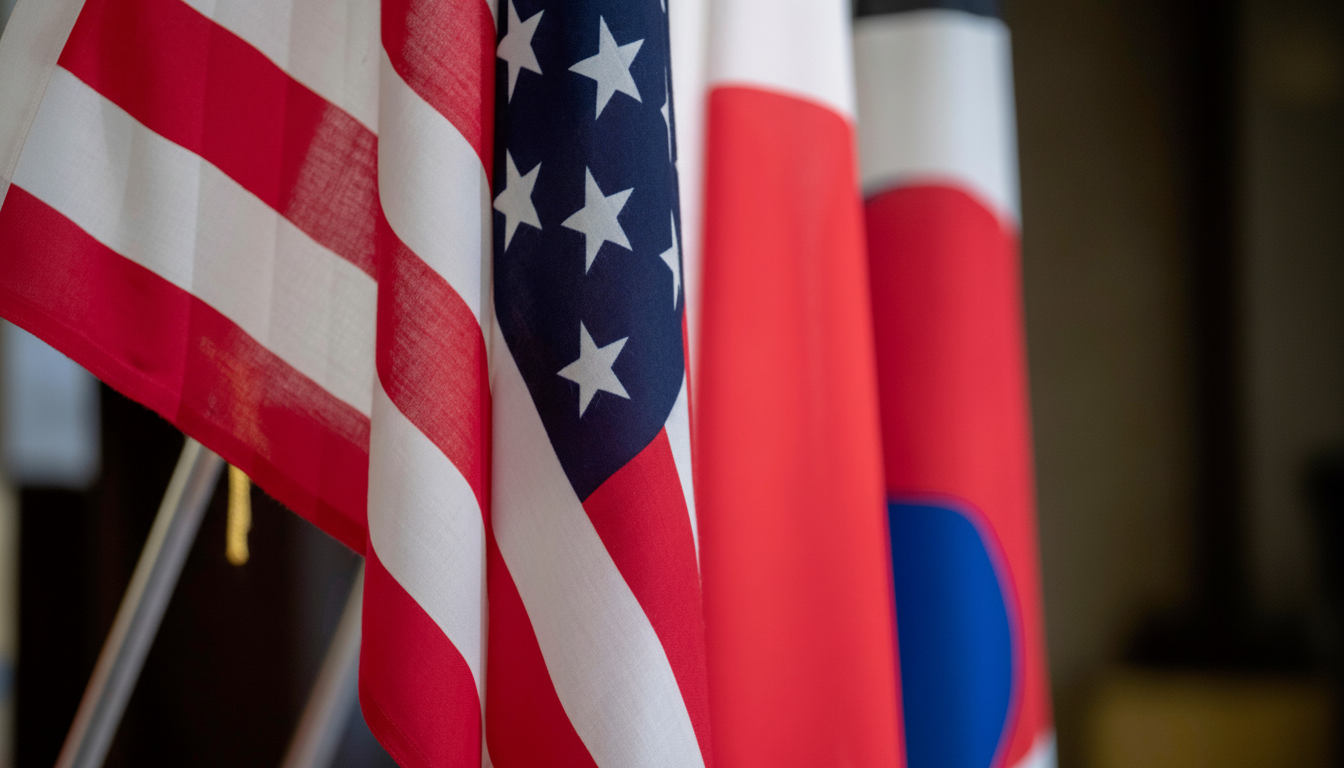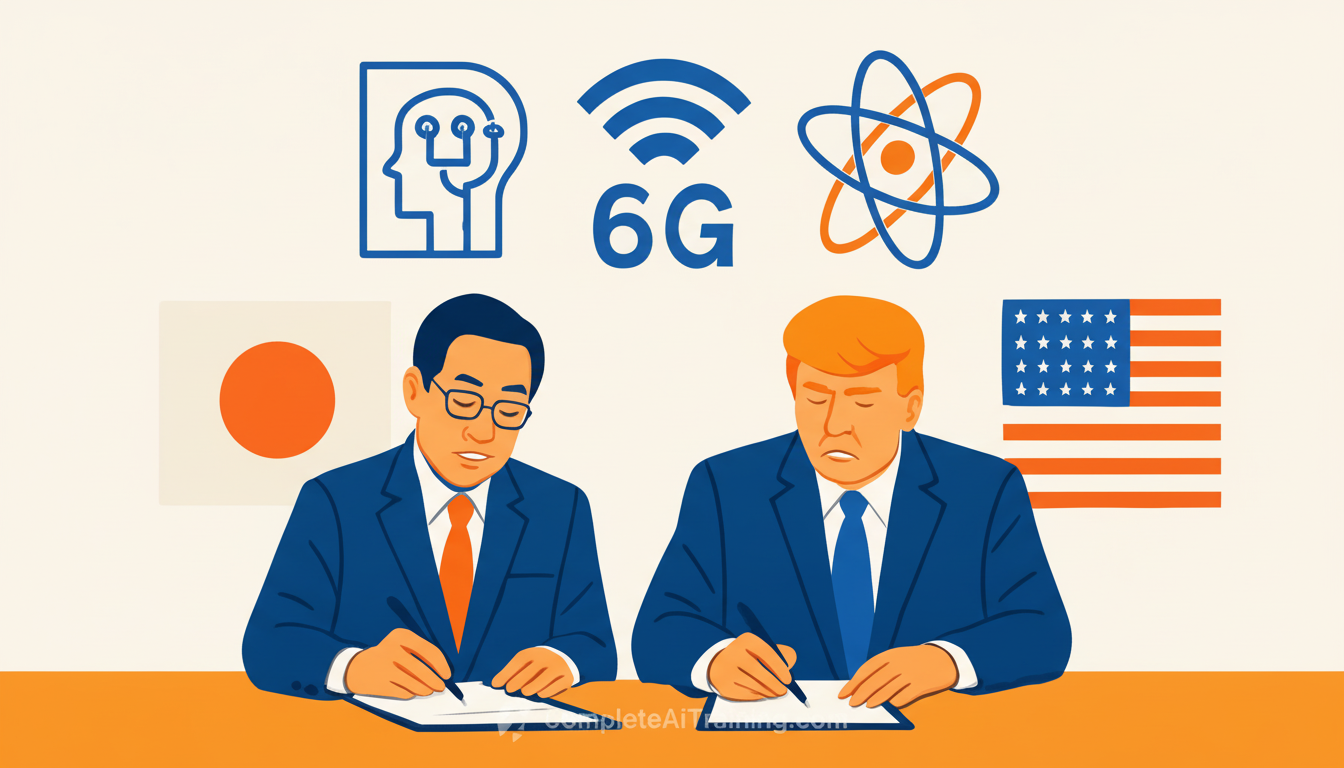Science Magazine offered coverage of Washington’s new Technology Prosperity agreements with Japan and South Korea in a coordinated effort to spur “AI, 6G, biotech, and more.” As reported, such agreements include shared expectations for standards, exports, and data practices and enhance supply chain relations among three of the most advanced tech systems. Additionally, it said the White House announced the agreements and an initiative to consolidate the shared rules in the current week. An initiative to strengthen national security, pacts also establish a reliable trilateral structure for innovation.
The U.S.–Japan deal prioritizes a full-stack AI strategy. As per White House and Commerce Department summaries, the two nations commit to a pro-innovation policy framework for AI, safeguards for critical technologies, and actions to bolster IP and research security. The U.S.–South Korea deal prioritizes a “live” agreement in which the two countries quickly act on mutual commitments to combat present concerns about the safety of AI technologies. It additionally links NIST and the U.S. AI Safety Institute with the Korea AI Safety Institute to strengthen metrology, benchmarking, and standards action.
- Japan and South Korea remain pivotal in chips and equipment
- Deals align with national semiconductor and R&D programs
- AI standards, testing, and safety coordination across allies
- Biotech and advanced manufacturing cooperation spans scale-up
- Next-wave platforms: 6G alignment and quantum coordination
- What to watch next as trilateral working groups advance

Japan and South Korea remain pivotal in chips and equipment
Japan remains indispensable in upstream chip inputs and precision equipment. SEMI and Japan’s METI point out that Japanese firms lead globally in photoresists, specialty chemicals, and silicon wafers, with Shin-Etsu and Sumco providing most of the world’s substrates. Tokyo Electron and Nikon likewise anchor vital tool segments.
South Korea is the memory manufacturing epicenter. TrendForce’s calculations show Samsung and SK Hynix together control more than half of the DRAM market and a considerable portion of NAND, capacity driving AI training clusters and data centers. The position makes Seoul essential for stabilizing memory supply and coordinating export policies.
Deals align with national semiconductor and R&D programs
The U.S. CHIPS and Science Act triggers new wafer fabs, packaging sites, and advanced R&D centers with incentives. Japan’s multimillion-dollar subsidies promote world-class production, including programs that support TSMC’s Kumamoto and Rapidus 2 nm with IBM investments. South Korea’s K-Chips policy provides tax credits—up to 25% for strategic semiconductor investments, talent pipelines, and power infrastructure where fabs are concentrated.
AI standards, testing, and safety coordination across allies
On AI, the three governments are converging on testing and assurance—where NIST’s AI Risk Management Framework and the just-created AI Safety Institute provide a language for industry. Japan’s standards bodies and Korea’s AI Safety Institute can accelerate benchmarks for model evaluation, synthetic data disclosure, and red-teaming for frontier systems.
Export controls will remain a central lever. Measures coordinated by the U.S. Bureau of Industry and Security in consultation with Tokyo and Seoul are aimed at preventing the diversion of sensitive AI computation and advanced chip manufacturing capabilities to military purposes while protecting the legitimate commercial flow. Alignment at ISO/IEC JTC 1 and IEEE on technical standards means firms only need to comply once, not three times.

Biotech and advanced manufacturing cooperation spans scale-up
The biotech cooperation also covers the research and scale-up range. Japan’s leadership in regenerative medicine, based on Nobel-recognized iPS cell research, supplements U.S. clinical and regulatory depth from NIH and BARDA. South Korea offers factories like Samsung Biologics and Celltrion, giving the triad end-to-end capabilities from discovery to commercial production.
Next-wave platforms: 6G alignment and quantum coordination
The agreements explicitly refer to next-wave platforms. Japan’s NTT and DOCOMO, Korea’s Samsung and LG, and U.S. labs at 6G testbeds aligned with the ITU’s IMT-2030 vision have already been developed. Early alignment on spectrum, interoperability, and security will reduce time-to-market and prevent costly fragmentation.
In quantum, RIKEN and AIST in Japan, Korea’s institutes, and U.S. Department of Energy QIS centers are coordinating materials and error-correction breakthroughs, research, shared roadmaps, and test facilities to make it easier for universities and startups to move from prototype to pilot deployments.
What to watch next as trilateral working groups advance
Near-term working groups will publish joint standards priorities, export control guidance, and data transfer principles. Watch pilot projects in the following areas:
- AI compute testbeds for evaluation and assurance
- Memory and supply assurance against hyperscale demand
- Quickly scalable biotech manufacturing nodes
The signal for industry is unequivocal: the U.S., Japan, and South Korea are combining policy, standards, and capital to de-risk strategic technologies. Companies that early align with these frameworks will be the first to cross-border procurement, grants, and access to markets on AI security-by-design, trusted chip supply, and validated bioprocessing.

